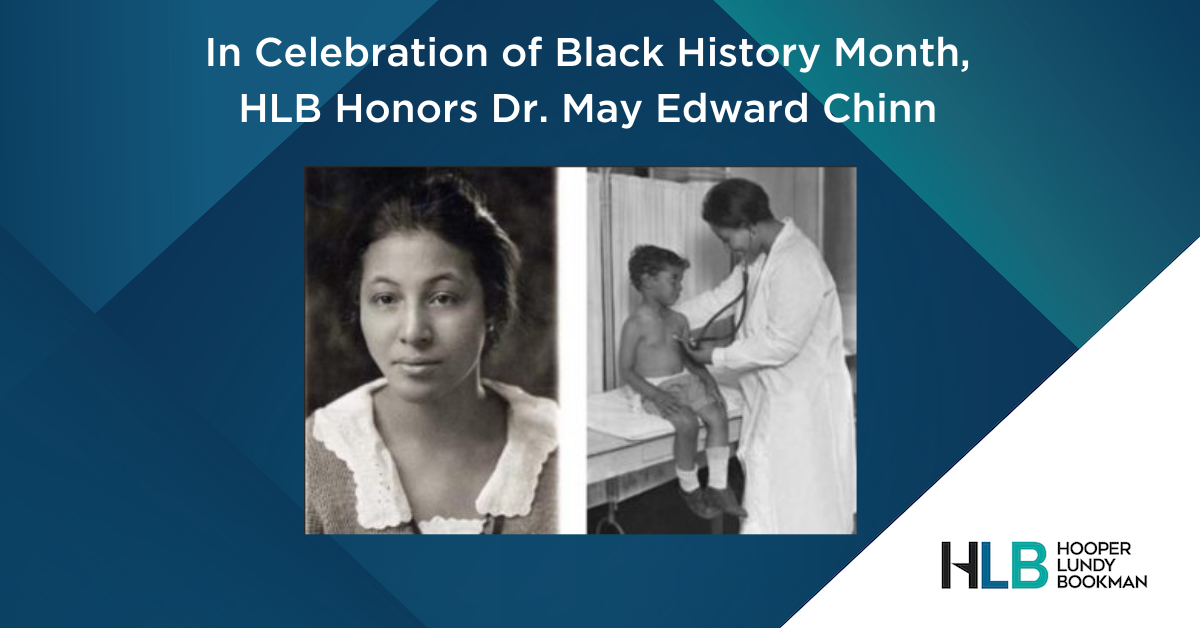
In celebration of Black History Month, HLB wants to highlight the life of Dr. May Edward Chinn (April 15, 1896 – December 1, 1980). May Edward Chin was born in 1896 to William Lafayette Chinn, a former Virginia slave, and Lulu Ann Evans, a Native American woman from the Chickahominy Indian Reservation.
As a child, her mother worked as a housekeeper for Charles L. Tiffany, of jewelry fame, and Dr. Chinn was educated alongside Tiffany’s children.[1] Dr. Chinn was the first Black woman to graduate from Bellevue Hospital Medical College, now known as NYU School of Medicine, in 1926. [2] However, when she graduated medical school, Dr. Chinn was unable to obtain privileges at any hospital because African-Americans were prohibited from entering into residency programs in New York clinics. Dr. Chinn then became the first female intern at Harlem Hospital where she accompanied ambulance crews on calls, but she was still denied hospital privileges at Harlem Hospital. Dr. Chinn then opened her own private practice attending most of her patients in their homes. In 1933 she graduated from Columbia University with a master’s degree in public health. Harlem Hospital eventually granted Dr. Chinn privileges in 1940.
While in private practice, Dr. Chinn saw that many of her patients were suffering with terminal cancer, sparking an interest to understand how best to care for her patients. Unfortunately, she was refused any clinical research information from New York Clinics. In response, Dr. Chinn accompanied her patients to their cancer treatments as the family physician, where she would observe the treatments and procedures herself. She also studied with the George Papanicolaou, the discoverer of the “pap smear,” which further increased her interest and advocacy for cancer screening.
From 1944 through 1974 she conducted cancer research and cancer screening advocacy at the Strang Clinic, while also maintaining her private practice. Dr. Chinn maintained her private practice in Harlem for fifty years. In 1954 she became a member of the New York Academy of Sciences, received a citation from the New York Cancer Committee of the American Cancer Society in 1957, and in 1980 awarded an honorary doctorate of science for her contributions to medicine from Columbia University.
[1] Ware, Susan, and Stacy Lorraine Braukman, eds. Notable American Women: Completing the Twentieth Century. Cambridge: Harvard UP, 2004. Women and Social Movements in the United States,1600-2000 Database.
[2] NIH, U.S. National Library of Medicine, Changing the Face of Medicine.